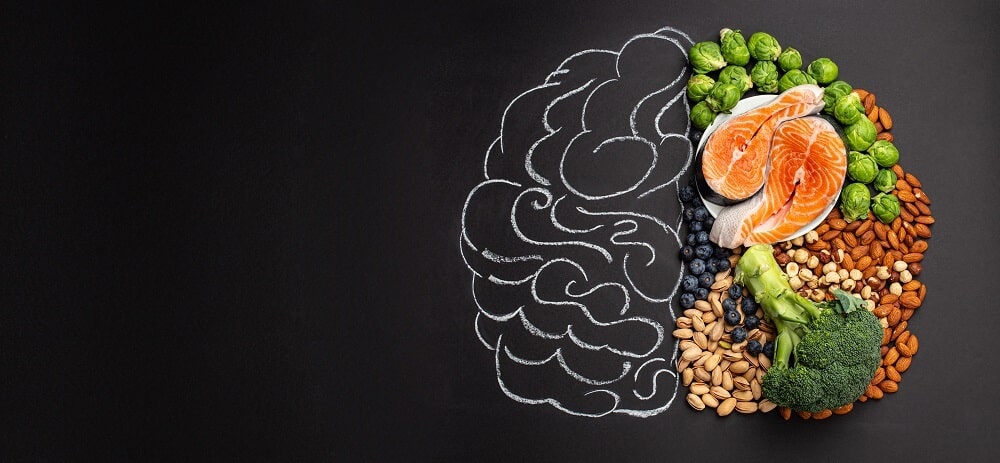Did you know that your diet has an impact on your brain’s health? Many foods contain antioxidants, which help protect your brain from free radical damage, which can lead to neurodegenerative diseases such as Alzheimer’s and Parkinson’s.
A healthy diet rich in fruits and vegetables, whole grains, and lean proteins can help you maintain mental sharpness as you age. But what exactly does that mean? It entails making the deliberate decision to eat foods that will help your brain function now and in the future.
A brain-healthy diet includes plenty of fruits and vegetables, whole grains, fish, olive oil, and nuts, as well as lean meats and low-fat dairy products. A brain-healthy diet is essential if you want to get the most out of your mind and keep it sharp for as long as possible. Here’s how to eat properly to keep your mind sharp and functioning optimally.
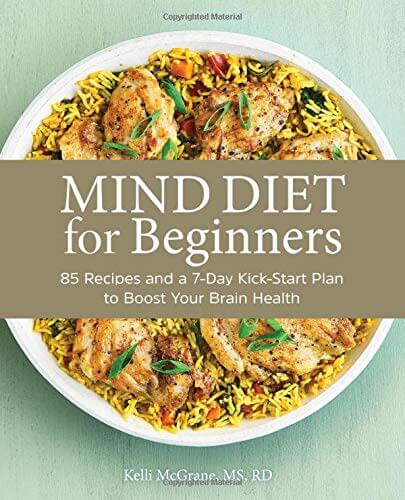
THE MIND DIET
The term “MIND” stands for “Mediterranean-DASH Intervention for Neurodegenerative Delay.” The MIND diet aims to reduce dementia and the deterioration of brain function that occurs as people age.
It incorporates elements of the Mediterranean diet as well as the Dietary Approaches to Stop Hypertension (DASH) diet, two well-known eating plans. According to many experts, the DASH diet and the Mediterranean diet are two of the brain healthy diet.

What Is the MIND Diet and How Does It Work?
MIND diet’s recommended guidelines emphasize plant-based foods that are minimally processed while restricting animal-based foods that are high in saturated fats and have added sugars. The diet also suggests portion management, but unlike many other diets, it does not emphasize weight reduction.
The MIND diet consists of 15 dietary components. Simply eat more of the 10 foods recommended by the diet and less of the 5 foods recommended for brain healthy diet.
In general, you should consume at least 3 servings of whole grains, fruits, and vegetables per day, 1 to 2 servings of beans, chicken, and fish per week, and nuts and berries as daily snacks. The diet also stresses using olive oil as a healthy source of fat while cooking.
While you don’t have to exclude meats and dairy from your diet, the plan advocates consuming them in moderation, no more than four times each week. Instead, the diet suggests replacing it with protein-rich beans and legumes, which are vital brain healthy diet.

The MIND diet recommends the following 10 foods to eat more each week:
Whole Grain Cereals
Whole grains are the foundation of a balanced diet. They can help you lower your risk of heart disease, manage diabetes, lose weight, and protect your brain.
Green Leafy Vegetables
It shouldn’t be surprising that leafy greens rich in nutrients like kale, spinach, collards, and chard are also rich in antioxidants. They are a requirement sine qua non for maintaining brain health.
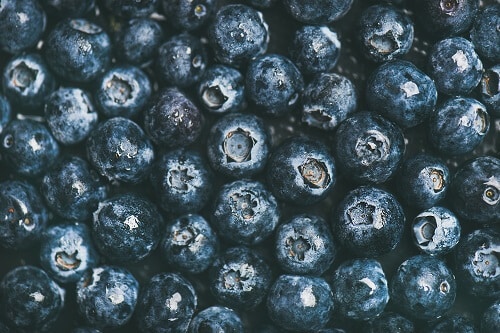
Berries
Berries are not only tasty, but they are also high in antioxidants. Berries include flavonoids, which enhance neural connections and make it simpler for neurons to communicate.
Nuts
Almonds, for example, are a fibre-rich satisfying snack that helps keep hunger away. They also provide some significant health advantages. Almonds are high in vitamin E, an antioxidant that absorbs free radicals that damage brain cells, whereas walnuts contain anti-inflammatory omega-3 fats.
Beans
Magnesium, which aids in the usage of energy by brain cells, is abundant in several beans, including pinto, and chickpeas.

Vegetables
For good reason, the MIND diet puts great importance on eating vegetables. A study discovered that eating five or more servings of fruits and vegetables per day reduced the risk of dementia by decreasing inflammation and improving heart health, both of which help improve brain vascularity.
Wine
Moderate drinking of wine does have health advantages. Although the exact mechanism behind why one glass of wine per day is helpful for the brain is still unknown.
Drinking more than one glass per day seems to do more harm than benefit.
Fish
Omega-3 fatty acids, which are utilized to create the brain’s solid matter and to prevent inflammation, are easily obtainable in oily fish.
Chicken
A 2011 research suggested eating the B vitamin choline, which is abundant in poultry, may help prevent dementia. Choline is crucial for brain development.
Olive Oil
The Mediterranean diet includes olive oil, and its health advantages extend to the brain. Olive oil contains oleocanthal, a compound that reduces inflammation by inhibiting the inflammatory enzymes COX-1 and COX-2. Other research has shown that older persons who ingest olive oil daily had the best ageing index results.

Five foods to avoid while following the MIND diet:
Butter and margarine
Consume no more than 1 tablespoon (14 grams) every day. Instead, make olive oil your main cooking fat and dip your bread in it with herbs.
Cheese
Cheese should be consumed no more than once a week, according to the MIND diet.

Red meat
Limit yourself to three servings each week. This category comprises all beef, pig, lamb, and meat-based items.
Fries
Fried food, particularly fast food, is strongly discouraged from the MIND diet. Consumption should be limited to no more than once per week.
Desserts and pastries
Most processed snack foods and sweets come under this category, including brownies, snack cakes, ice cream, cookies, doughnuts, candies, and others.
Limit yourself to no more than 3 times each week.
However, there’s a book, The Brain-Healthy Diet for Maximum Mental Health.
Which has more in-depth information on this subject and explains how to properly follow the MIND diet.
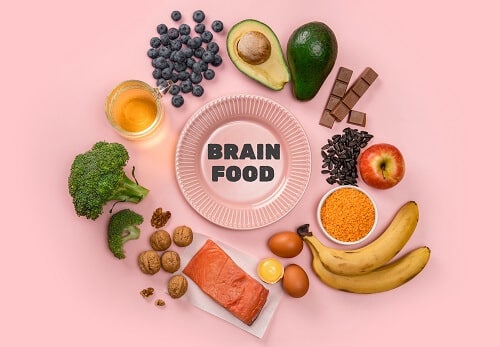
How Does It Help?
The food categories advised in the MIND diet are high in fiber and high in numerous dietary elements that have been shown to improve brain function. Vitamin E, Folate, Omega-3 fatty acids, Carotenoids, and Flavonoids are among them.
The MIND diet has been shown in studies to enhance brain health and lessen your risk of acquiring illnesses such as Alzheimer’s disease, dementia, and other kinds of age-related cognitive decline. According to studies, eating certain foods and avoiding unhealthy ones can delay brain aging by 7.5 years.
Alzheimer’s disease is currently the sixth leading cause of death in the United States, affecting an estimated 5 million people. By 2025, the number is expected to exceed 7 million. In one research of 1,300 older persons who followed the MIND diet, it was shown that those who adhered to it religiously had a 53% decreased risk of acquiring Alzheimer’s disease. Those who followed it moderately saw their odds drop by 35%.
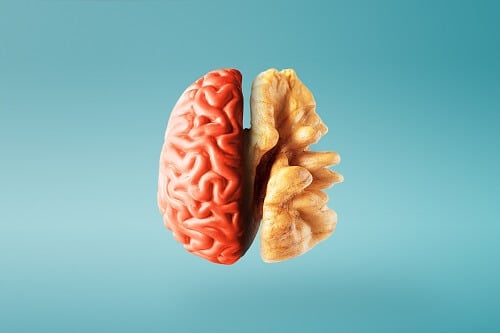
Should I Adherence to the MIND Diet?
The MIND diet is a good brain healthy diet that has shown promising results for overall brain health, whether you have a family history of Alzheimer’s disease or other cognitive problems.
While more research on the overall benefits of the MIND diet is needed, the evidence so far indicates that it is a good diet strategy for your long-term health. Even if you eat out, it’s relatively simple to follow and expand on recipes. This is because the diet focuses on healthy foods and you do not need to watch your daily calorie consumption.
Before beginning the MIND diet or any other diet, consult with your doctor to see whether it is a good match for your health and if it brain healthy diet. If you’re not sure where to begin, see a qualified nutritionist or a dietitian. They may be able to assist you in developing a food plan that works best for you.
Conclusion
The MIND diet was developed to aid in the prevention of dementia and the slowing of the deterioration in brain function that may occur with age. Consumption of vegetables, berries, nuts, whole grains, olive oil, fish, beans, chicken, and wine is encouraged.
Many nutrients in these meals are brain-healthy diets that enhance brain function, presumably by lowering oxidative stress, inflammation, and the production of beta-amyloid plaques.
Early research suggests that eating a brain healthy diet is linked to a decreased risk of Alzheimer’s disease and a slower loss of brain function over time.
If you have ever tried the MIND diet, let us know in the comments your favorite sources of a healthy diet that helped you in improving brain functionality.
REFERENCE
Morris MC, Tangney CC, Wang Y, Sacks FM, Barnes LL, Bennett DA, Aggarwal NT. MIND diet slows cognitive decline with ageing. Alzheimer’s Dement. 2015 Sep;11(9):1015-22. doi: 10.1016/j.jalz.2015.04.011. Epub 2015 Jun 15. PMID: 26086182; PMCID: PMC4581900.
Organization, W. H. Adolescent Obesity and Related Behaviours: Trends and Inequalities in the WHO European Region, 2002–2014 (World Health Organization: Regional Office for Europe, 2017)

